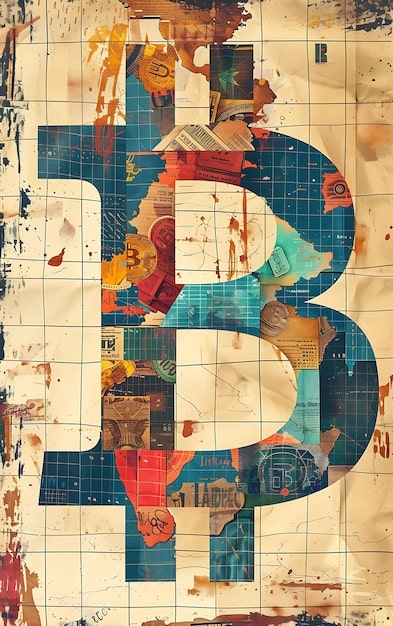News Tokenization: NFTs Revolutionizing Journalistic Content Ownership in the US

News tokenization, utilizing NFTs, presents a novel approach to journalistic content ownership in the US, potentially reshaping revenue models and empowering creators with greater control and security over their work.
The intersection of journalism and blockchain technology is creating exciting new possibilities. News tokenization, specifically the use of Non-Fungible Tokens (NFTs), is emerging as a potential game-changer for content ownership and revenue generation for journalists in the US. This innovative approach promises a new era of control and sustainability for news creators.
News tokenization: redefining journalism in the digital age
News tokenization is gaining traction as a way to address some of the critical challenges facing the journalism industry. This innovative approach leverages the unique properties of NFTs to create a more sustainable and equitable ecosystem for content creators. By transforming news articles and other journalistic works into tradable digital assets, tokenization can unlock new revenue streams and foster a stronger connection between journalists and their audience.
The implications of news tokenization extend far beyond simply selling individual articles as NFTs. It has the potential to fundamentally alter the way news is produced, distributed, and consumed. Let’s delve deeper into the mechanics and potential benefits of this burgeoning trend.
Understanding Tokenization
Tokenization, in essence, is the process of converting something into a digital token that can be represented on a blockchain. This token can then be bought, sold, or traded like any other cryptocurrency or digital asset. When applied to news, tokenization can transform articles, photos, videos, or even entire news publications into NFTs.
The Role of NFTs
NFTs are unique, non-interchangeable tokens that represent ownership of a specific digital asset. This makes them ideally suited for news tokenization, as they provide a verifiable and transparent record of ownership for journalistic content. Each NFT can contain metadata about the article, such as its author, publication date, and a permanent link to the content itself.
- Enhanced Ownership: NFTs establish clear and verifiable ownership of journalistic content.
- Direct Monetization: Journalists can sell their work directly to consumers, eliminating intermediaries.
- New Revenue Streams: Options include selling individual articles, subscriptions, or exclusive content as NFTs.
- Community Building: Tokenization can foster stronger connections between journalists and their audience through exclusive NFT offerings and community engagement.
In conclusion, news tokenization is a promising avenue for journalists seeking greater control over their work and new ways to generate revenue. By embracing blockchain technology and NFTs, the journalism industry can potentially create a more sustainable and equitable future.

Benefits of NFTs for journalistic content ownership
The application of NFTs to journalistic content ownership offers a multitude of benefits for both content creators and consumers. By leveraging the unique properties of blockchain technology, NFTs can address many of the challenges plaguing the traditional news industry.
One of the most compelling advantages of NFTs is their ability to provide verifiable ownership of digital assets. This is particularly crucial for journalistic content, which is often subject to copyright infringement and unauthorized distribution.
Securing Intellectual Property
NFTs act as a digital certificate of authenticity, ensuring that journalists retain control over their intellectual property. This can help to prevent plagiarism and unauthorized use of content, protecting the rights of the creator.
Creating New Monetization Opportunities
NFTs open up new avenues for journalists to monetize their work. Instead of relying solely on traditional advertising or subscription models, journalists can sell their articles, photos, or videos directly to consumers as unique digital assets.
- Direct Sales: Sell individual articles or content packages as NFTs.
- Exclusive Content: Offer NFT holders access to exclusive content or behind-the-scenes material.
- Subscription Models: Create NFT-based subscriptions that grant access to a specific publication or journalist’s work.
- Collectibles: Issue limited-edition NFT collectibles related to specific news events or journalistic investigations.
Ultimately, the use of NFTs for journalistic content ownership has the potential to empower journalists, protect their intellectual property, and create new opportunities for financial sustainability. This can lead to a more diverse, independent, and vibrant news ecosystem.
Challenges and considerations for news tokenization in the US
While news tokenization offers considerable promise, there are also several challenges and considerations that need to be addressed before it can be widely adopted in the US. These challenges range from technical hurdles to legal uncertainties and consumer adoption rates.
One of the primary challenges is the technical complexity associated with creating, managing, and trading NFTs. Many journalists and news organizations lack the technical expertise to navigate the intricacies of blockchain technology.
Technical Barriers
The process of minting, listing, and selling NFTs can be daunting for those unfamiliar with cryptocurrency wallets, blockchain platforms, and smart contracts. Simplifying these processes and providing user-friendly tools will be essential for widespread adoption.
Legal and Regulatory Uncertainty
The legal and regulatory landscape surrounding NFTs is still evolving, creating uncertainty for news organizations looking to embrace tokenization. Issues such as copyright ownership, securities laws, and tax implications need to be clarified to provide a clear legal framework.
- Copyright Protection: Ensuring that NFTs effectively protect the copyright of journalistic content.
- Securities Regulations: Determining whether NFTs representing news content are subject to securities laws.
- Tax Implications: Clarifying the tax treatment of NFT sales and transactions involving journalistic content.
- Consumer Protection: Establishing guidelines to protect consumers from fraud and scams related to NFT-based news products.
Overcoming these challenges will require collaboration between journalists, technologists, legal experts, and policymakers. By addressing these issues proactively, the news industry can pave the way for a successful and sustainable implementation of news tokenization in the US.

Examples of news organizations experimenting with NFTs
Despite the challenges, several news organizations and individual journalists are already experimenting with NFTs as a way to monetize their content and engage with their audience. These early adopters are providing valuable insights into the potential of news tokenization.
One notable example is Associated Press (AP), which has launched an NFT marketplace to sell its iconic photographs. This initiative allows collectors to own unique pieces of AP’s historical archive while providing the news organization with a new revenue stream.
Pioneering Initiatives
Several independent journalists are also exploring NFTs as a way to fund their work and connect directly with their readers. By selling individual articles or exclusive content as NFTs, these journalists are bypassing traditional gatekeepers and building a more sustainable model for independent journalism.
Key Experiments
Here are a few examples to illustrate the variety of approaches being taken:
- Selling Iconic Photographs: News agencies like AP tokenizing historical images.
- Funding Investigative Journalism: Independent journalists using NFTs to finance in-depth reporting.
- Creating Exclusive Content for NFT Holders: Publications offering NFT holders access to premium news and analysis.
- Building Community through NFTs: Journalists using NFTs to foster a stronger connection with their audience.
These examples demonstrate the diverse ways in which news organizations and journalists are leveraging NFTs to create new revenue streams, engage with their audience, and assert ownership over their content. As the technology matures and adoption grows, we can expect to see even more innovative uses of NFTs in the news industry.
The future of news consumption and NFTs
The integration of NFTs into the news ecosystem could fundamentally reshape how news is consumed and valued. By creating a direct connection between content creators and consumers, NFTs can foster a more equitable and sustainable model for journalism.
One potential future scenario involves readers purchasing NFTs that grant them access to specific articles, series, or even entire news publications. This would allow readers to directly support the journalism they value while also owning a unique digital asset.
Potential Transformations
Another possibility is the emergence of NFT-based journalism collectives, where journalists pool their resources and create content that is collectively owned and governed by the members. This model could empower journalists to operate independently while still benefiting from the collective strength of a larger organization.
Key Trends
Here are some potential trends to consider:
- Micro-payments for News: NFTs facilitating small, direct payments for individual articles or content snippets.
- NFT-Based Subscriptions: Gaining access to publications or journalists’ work through NFT ownership.
- Community-Owned News Platforms: Journalists and readers collectively owning and governing news platforms.
- NFTs as a Store of Value for Journalism: Unique or historically significant articles becoming valuable digital collectibles.
Ultimately, the future of news consumption and NFTs will depend on the willingness of both journalists and consumers to embrace this new technology. By working together, they can create a more sustainable, equitable, and vibrant news ecosystem that benefits everyone.
Ethical considerations for news NFTs
As with any new technology, the use of NFTs in journalism raises several ethical considerations that need to be carefully addressed. These considerations range from transparency and accountability to potential conflicts of interest and the digital divide.
One of the primary ethical concerns is the potential for NFTs to be used to manipulate or distort news content. If NFTs are used to create fake or misleading articles, it could erode public trust in the media.
Ensuring Transparency and Accuracy
It is crucial to establish clear standards for the creation and distribution of news NFTs to ensure that they are accurate, transparent, and free from bias. This may involve implementing mechanisms for verifying the authenticity of content and disclosing any potential conflicts of interest.
Addressing the Digital Divide
Another ethical consideration is the digital divide, which refers to the gap between those who have access to technology and those who do not. If NFTs become the primary way to access news, it could exclude individuals who lack the necessary technology or digital literacy.
- Transparency and Disclosure: Clearly disclosing the ownership and funding sources of news NFTs.
- Accuracy and Verification: Implementing mechanisms for verifying the authenticity of news content minted as NFTs.
- Accessibility: Ensuring that news remains accessible to individuals who lack the technology or financial means to purchase NFTs.
- Conflicts of Interest: Avoiding situations where the ownership of NFTs could influence journalistic objectivity or coverage.
By proactively addressing these ethical considerations, the news industry can ensure that the use of NFTs is aligned with the principles of responsible journalism and serves the public interest.
| Key Point | Brief Description |
|---|---|
| 🔑 NFT Ownership | NFTs provide verifiable ownership of journalistic content. |
| 💰 New Revenue | Direct monetization through selling articles as NFTs. |
| 🛡️ IP Protection | NFTs help secure intellectual property rights. |
| 🌐 Community Building | NFTs can enhance community engagement around news. |
Frequently Asked Questions
News tokenization is the process of converting journalistic content, such as articles or images, into digital tokens on a blockchain, often using Non-Fungible Tokens (NFTs) to represent ownership.
NFTs provide journalists with verifiable ownership of their work, allowing them to sell it directly to consumers and bypass traditional intermediaries, creating new revenue streams.
Challenges include the technical complexity of creating and managing NFTs, legal and regulatory uncertainty surrounding digital assets, and the need for wider consumer adoption.
Yes, ethical considerations include ensuring transparency, preventing misinformation, addressing the digital divide, and navigating potential conflicts of interest.
The future may see micro-payments for news, NFT-based subscriptions, community-owned news platforms, and NFTs as valuable collectibles, reshaping news consumption and distribution models.
Conclusion
The integration of NFTs into the realm of journalistic content ownership holds tremendous potential for reshaping the news landscape in the US. From empowering journalists with greater control over their work to creating new avenues for monetization and community engagement, news tokenization presents a compelling vision for the future of journalism. While challenges remain, the early experiments and innovative approaches being explored today suggest that NFTs could play a significant role in fostering a more sustainable, equitable, and vibrant news ecosystem.





